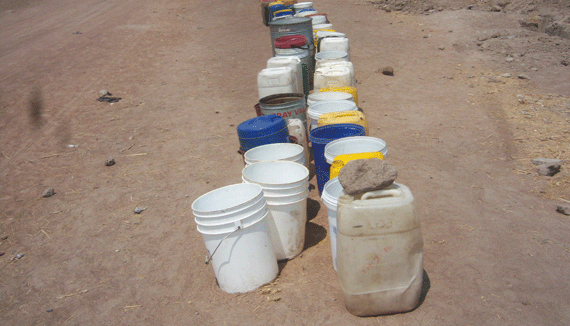
WE NOW return to our earlier series on language as culture. All languages express the culture of the people who speak them.
If you were to say Izintombi zaziqhunsula uhleko exhibeni lazo or Ubaba wathatha induku yakhe lehlokana lakhe wabiza inja yakhe waqonda egangeni, you are using language to describe Ndebele cultural situations.
There is hardly anything that exposes the customs and culture of a people more than language – the words, the idioms and the proverbs. Only the Ndebele people will say: Kokwabanye nwanwayi kokwakho finye (abanye bathi finyo ingabe bayakwazi yini ukuthi ukuthi finyo kutshoni?
Be that as it may the real issue is knowing the language so well that you choose the right words to use in any given situation, for instance, is there a difference between Ngizakutshaya and Ngizakubetha, “Ngizakumukula and Ngizakuhlankala? What does it mean exactly to say Ngizakumukula? Umuntu umgqimiza uduma ngani?
All these expressions have to do with inflicting pain on somebody yet the real meanings give certain cultural connotations. In addition the act of inflicting pain may be expressed through certain idiomatic expressions that are peculiar to Ndebele only.
For instance, Wamhlaba ngempama etshisayo wathi dili wagcwala phansi If you miss the cultural meanings of this sentence then you are losing out on the cultural dimension of the Ndebele language.
Whereas the true purpose of language is to communicate, all peoples have developed their convention of communication, that is to say that each language has developed a common and acceptable way of communicating. The word sondeza is understood by all Ndebele language speakers to mean “bring something nearer” or hluthula to take away something from someone with force or snatch something from somebody. These English translations lack contextual connotations.
Therefore, language consists in the use of appropriate cultural vocabulary. If you say, faka inkomitsho leyo phezu kwetafula you are obviously wrong because to faka is to push into like faka ukudla emlonyeni whereas you beka the cup phezu kwetafula.
- Chamisa under fire over US$120K donation
- Mavhunga puts DeMbare into Chibuku quarterfinals
- Pension funds bet on Cabora Bassa oilfields
- Councils defy govt fire tender directive
Keep Reading
The words faka and beka may have synonymous connotations, but may not be used interchangeably as you don’t beka ukudla emlonyeni. There are many such similar words whose use, however, is not the same. Consider woza and buya or letha and buyisa, Woza lapha ngizokutshela imfihlo. Buya implies, in fact, means “come back or return” because you were here earlier.
But woza strictly means come here. The monosyllabic verb stem -za which means come combines with many other initial syllables: woza, iyeza, bazakuza, inkomo yeza yodwa all carrying the idea of “to come”. So next time watch out whether you want to say woza (come) or buya (return or come back). There is a lot of carelessness about these words.
As for letha and buyisa the situation is worse. To start with the verb buyisa is corrupted to bisa in such expressions as Bisa lapha ngikutshengise ukuthi kwenziwa njani Please note that there is no such word in Ndebele as bisa.
The verb is buyisa which means to bring back. Therefore, Buyisa imali yami leyo owayiboleka ngomnyaka ophelileyo, but Letha impahla zami lezo osuzugcinele zona emzini wakho.
Here are some examples of the correct usage of these verbs: Woza lapha mfana ngikuthume kumalumakho. Usumele ubuye ekhaya ngoba kade wahamba. Uboletha impongo yakho izodunga izibhuzikazi zami. Umakoti wabuyiswa kwabo ngoba elomlomo ekwendeni.
Some words cause confusion especially when they are borrowed words from other languages . Some people attempt to make a distinction between “book” and “letter”. The words (both borrowed) are ibhuku and ugwalo with a neutral third incwadi. Which is which? Lobhengula’s praise songs (izibongo zikaLobhengula) talk about uNgwalongwalo kaMatshobana does that mean “books and books” or “letters and letters?”
The historical fact is that Lobhengula was simply inundated with letters izingwalo from whites seeking permission to enter his country for whatever reasons.
The Ndebele people had already borrowed and adopted the Sotho/Pedi word for a letter ugwalo. A Nguni term incwadi was already in existence, but it was (and still is) neutral to refer to any written material, book or letter. Hence the Bible books, Incwadi kaGenesisi or Ugwalo luka Genesisi.
And it is also correct to say, Ugwalo lwami ludabukile or incwadi yami isidabukile (My book or my letter is torn).
We can easily say, Ibhuku lami selidabukile. We will give a fuller explanation at a later stage concerning the different ways how Ndebele borrows and adopts foreign words especially from English.
There is a common language error which was peculiar to young people and children but it is now becoming common to old people as well because they have grown up with it.
The verb stem –azi (to know) gives us the verbal noun uku + -azi >ukuazi, but with a semi-vowel -w- or –y-, hence uku-w-azi. The –u- of –uku- is dropped to leave uk-w-azi >ukwazi.
The dynamic of this operation may be somewhat difficult to follow in this simplified discussion. Nevertheless, our resulting word is ukwazi.
Ngifuna ukwazi ukuthi kuvela ngaphi lokho: UKWAZI. There is no such word as ukubakwazi in Ndebele.










